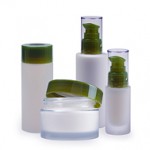Essential Oil Safety
 When used appropriately, essential oils and aromatherapy products are safe for all the entire family. As with all things in life though, some common sense precautions should be observed when using essential oils since they are highly concentrated.
When used appropriately, essential oils and aromatherapy products are safe for all the entire family. As with all things in life though, some common sense precautions should be observed when using essential oils since they are highly concentrated.
Undiluted essential oils
Do not apply undiluted essential oils directly to the skin except in an emergency; for example to cuts, burns or insect bites. A single drop of undiluted Lavender, Tea Tree or Chamomile Roman oil can be used to soothe and protect from infection – but you should only apply them neat once or twice. Some individuals can become sensitised to neat Tea Tree oil if it is applied repeatedly.
In particular, undiluted essential oils should be kept away from the delicate eye area, unattended children, pets and all highly polished surfaces. And never, ever, use undiluted oils on children under the age of 3. Their under-developed and delicate internal organs can not eliminate the oils or deal with their metabolites efficiently.
Pregnancy
If you are pregnant you must seek the advice of your doctor, midwife or aromatherapist before using any essential oils. Once your doctor has given their approval they should be used only after the first trimester, and then at only a 1% concentration, which is half the normal strength.
It is also a good idea to seek the advice of your supplier or aromatherapist to ensure that the essential oils you are thinking of using are not contraindicated during pregnancy. There is a lot of misinformation about precisely which essential oils should not be used and some aromatherapy books produce a huge list of contraindicated oils that are completely out of proportion to the facts.
Much of this misinformation is based on the internal use of the plant in herbal preparations, and this is certainly not the same as the external use of a diluted essential oil in massage. Most essential oil experts argue that since many contraindicated essential oils are used as food additives they can hardly be considered dangerous.
However, if you have a history of miscarriage do not use any essential oils at any time during your pregnancy since it is better to err on the side of caution under these circumstances. Essential oils best avoided throughout your pregnancy include:
- Camphor (Cinnamomum camphora)
- Rosemary (Rosemarinus officinalis)
- Sage (Salvia officinalis)
- Savin oil (Juniperus sabina) – Never use in aromatherapy
Babies, infants and young children
As already stated, never use any essential oils undiluted on babies up to 3 years old. Essential oils should be used at a fraction of the usual concentration, and the correct procedure is to calculate the amount of essential oil to be used by the body-weight of the infant:
- 1 to 2 stones – 1 drop of essential oil
- 2 to 4 stones – 2 or 3 drops of essential oil
- 4 to 6 stones – 4 or 5 drops of essential oil
Internal use
Never take essential oils internally, unless under the guidance of a qualified aromatherapist who has received the necessary training in this very specialised mode of administration. Most aromatherapists have not had this training, so be sure to check this out first.
You may read articles in magazines and books extolling the virtues of taking essential oils internally, but you should absolutely never attempt this without expert guidance.
Photosensitivity
Some essential oils are mildly photosensitising and should be either avoided or used at a low level prior to sunbathing or using a sunbed. The main photosensitising oils used in aromatherapy include:
- Angelica root oil (Angelica archangelica)
- Bergamot oil expressed (Citrus aurantium ssp. bergamia)
- Bitter Orange oil (Citrus aurantium)
- Cumin oil (Cuminum cyminum)
- Lemon oil cold pressed (Citrus limonum)
- Lime oil expressed (Citrus aurantifolia)
- Tagette oil (Tagetes minuta)
If you love Bergamot essential oil and want to go out into the sunshine, be sure to use Bergamot FCF which has had the photosensitising components removed.
Irritants and sensitisers
Some essential oils can irritate the skin if used in too high a concentration or for a long period of time. The essential oils below represent the most commonly known among this group.
- Bay Leaf oil (Pimenta racemosa)
- Cinnamon bark oil (Cinnamomum zeylanicum)
- Clove oils (stem, leaf, bud) Syzygium aromaticum
- Litsea Cubeba aka May Chang oil (Litsea cubeba)
- Origanum oil (Origanum vulgar)
- Tagette oil (Tagetes minuta)
- Thyme white and red oil (Thymus vulgaris)
- Use no more than 3 or 4 drops of citrus oils in the bath since some may irritate sensitive skin.
Oils that must be avoided altogether
Some essential oils should not be used in aromatherapy at all due to the danger of toxicity, severe irritation, sensitisation or other serious health risk. Most responsible aromatherapy suppliers do not offer such oils, but those listed below do find their way onto the market and should only ever be used by those have have undergone the necessary specialist training.
- Parsley herb oil (Petroselenium crispum)
- Pennyroyal oil (Mentha pulegium)
- Savin oil (Juniperus sabina)
- Tansy oil (Tanacetum vulgare)
- Wintergreen oil (Gaultheria procumbens)
- Wormwood oil (Artemisia absinthium)
Flammability
Many essential oils are flammable, so never use or put your bottles of essential oil near a naked flame, fire, or any source of ignition.
Copyright © 2007. Written by Geoff Lyth










